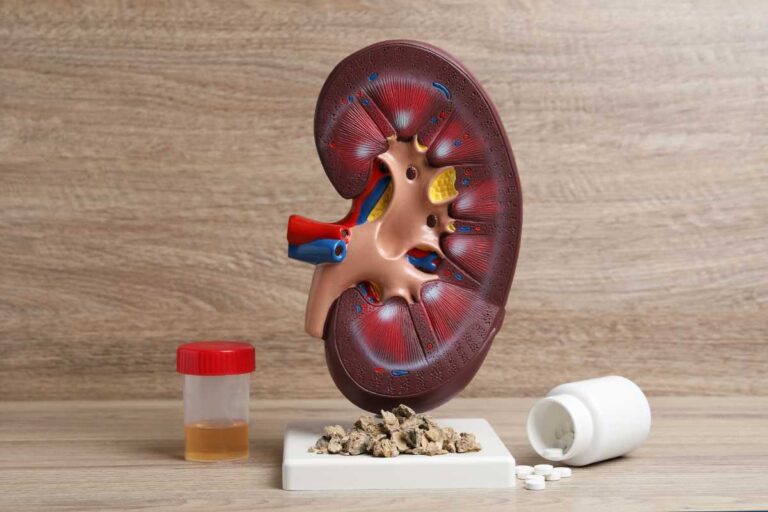Is Disease a Blessing in Islam? Unveiling Divine Wisdom
Is Disease a Blessing in Islam? Unveiling Divine Wisdom

In the realm of Islam, disease is not merely seen as a burden or a curse, but rather as a potential blessing from Allah. This unique perspective challenges conventional notions about illness and encourages believers to find solace and gratitude even in the face of physical afflictions. Understanding the concept of disease as a blessing requires delving into the teachings of Islam and exploring its positive aspects.
According to Islamic beliefs, all blessings come from Allah, including good health. However, when one falls ill, it is an opportunity for reflection and spiritual growth. Illness serves as a reminder of our mortality and dependence on Allah’s mercy. It allows individuals to develop patience, humility, and gratitude for the countless other blessings bestowed upon them.
By examining disease through an Islamic lens, we can gain a deeper understanding of its purpose and significance in our lives.
Islamic Perspective on Disease as a Test of Faith
In Islam, disease is seen as a test from Allah to strengthen the faith of believers. It is believed that through trials of illness, individuals have the opportunity to grow spiritually and demonstrate their patience and trust in Allah.
“Explore our latest articles on Prophetic Medicine to discover simple, natural remedies that can improve your health. Check them out now and start feeling better!“
Strengthening faith through trials of illness
Illnesses are viewed as opportunities for believers to deepen their faith and seek solace in the teachings of Islam. The Prophet Muhammad (peace be upon him) has emphasized the importance of maintaining faith during times of suffering. In a hadith, he said, “No fatigue, nor disease, nor sorrow, nor sadness nor hurt, nor distress befalls a Muslim, even if it were the prick he receives from a thorn but that Allah expiates some of his sins for that” (Sahih al-Bukhari). This highlights how diseases can serve as means for purification and redemption in the eyes of Allah.
Importance of patience and trust during sickness
During times of sickness, Muslims are encouraged to exercise patience and trust in Allah’s wisdom. The Prophet Muhammad (peace be upon him) taught that even ailments like fever can carry immense rewards for those who remain steadfast in their faith. He stated, “No Muslim is afflicted with any harm but for that Allah will cause his sins to be shed as leaves off a tree” (Ahmad).
Recognizing disease as an opportunity for spiritual growth
Islamic scholars have emphasized the significance of recognizing diseases as opportunities for spiritual growth. They highlight that illnesses can serve as reminders of human vulnerability and dependence on Allah’s mercy. Scholars encourage individuals to reflect on their actions and seek forgiveness during times of sickness. By doing so, they can turn their hardships into acts of worship by seeking closeness to Allah.
Examples from Islamic history
Throughout Islamic history, there have been numerous examples where individuals embraced diseases with unwavering faith. During epidemics, many Muslims willingly sacrificed their lives to care for the sick, considering it a noble act of martyrdom. This selflessness and dedication to serving others even in the face of illness exemplify the strength of faith and the belief that diseases can be blessings in disguise.
The judgment of scholars
Islamic jurists have also discussed the concept of disease as a test from Allah. They emphasize that enduring hardships with patience and faith can lead to immense rewards in the hereafter. While suffering from diseases may be challenging, believers are encouraged to remain steadfast and trust in Allah’s plan.
The Wisdom Behind Disease and its Purifying Effects
Disease believed to purify the soul in Islam:
In Islam, disease is seen as a test of faith and a means of purification. Muslims believe that when they suffer from illness, it is an opportunity for their souls to be cleansed and purified. It is believed that through the experience of disease, one’s sins can be forgiven, and their status in the sight of Allah can be elevated.
Understanding the wisdom behind suffering from illness:
Muslims understand that everything happens for a reason and that there is wisdom behind every trial they face, including disease. They believe that Allah allows them to experience illness as a way to remind them of their mortality and dependence on Him. It serves as a reminder to turn back to Allah, seek His forgiveness, and strengthen their faith.
Reflecting on personal growth through adversity:
When faced with disease or any other form of adversity, Muslims are encouraged to reflect on themselves and their actions. They are reminded to assess their lives, repent for any wrongdoings or sins committed, and strive towards self-improvement. Through this process of introspection and personal growth, they aim to become better individuals both spiritually and morally.
Embracing the transformative power of disease:
Muslims are taught to embrace the transformative power of disease by seeking treatment while also relying on prayer and supplication to Allah for healing. They understand that while medical intervention is necessary in treating diseases, ultimate cure comes from Allah alone. This belief helps them maintain hope during difficult times and find solace in knowing that there is a greater purpose behind their suffering.
In Islam, cleanliness holds great importance:
Cleanliness plays an essential role in Islamic teachings, particularly. Muslims are instructed to maintain good hygiene practices such as washing hands regularly with clean water before eating or touching food. Performing ablution (wudu) before prayers involves washing specific body parts, which helps in maintaining cleanliness and preventing the spread of diseases.
The prohibition of causing harm to oneself:
Islam emphasizes the importance of preserving one’s health and avoiding actions that may harm oneself. Muslims are encouraged to take care of their bodies and seek medical treatment when needed. It is considered a religious duty to maintain good health, as it enables individuals to fulfill their obligations towards Allah and society.
Quranic Teachings on Illness and its Purpose
The Quran, the holy book of Islam, provides guidance and teachings on various aspects of life, including illness. When faced with sickness, Muslims turn to the Quran for solace and comfort, seeking divine wisdom and understanding. The Quranic verses shed light on the purpose of illness and offer profound insights into its meaning.
Quranic Verses Addressing the Purpose of Illness
In the Quran, there are several verses that address the purpose of illness in Islam. One such verse is found in Surah Al-Baqarah (2:155), which states that Allah tests His servants with various trials, including sickness. This verse reminds believers that illness is not a punishment but rather a test of faith and patience.
Another verse in Surah Al-Mulk (67:2) highlights that Allah has created life and death to test who among us performs righteous deeds. Illness can serve as a reminder of our mortality and encourage us to reflect upon our actions and seek forgiveness.
Seeking Guidance from Religious Scriptures During Sickness
When Muslims fall ill, they often turn to religious scriptures for guidance and support. The Prophet Muhammad (peace be upon him) emphasized the importance of seeking medical treatment while also relying on faith. Uqbah ibn Amir narrated that the Prophet said, “Make use of medical treatment, for Allah has not made a disease without appointing a remedy for it” (Sunan Abi Dawood).
Muslims believe that seeking medical treatment is not only permissible but also encouraged in Islam. It demonstrates trust in Allah’s creation of remedies for every ailment. Therefore, when facing an illness, Muslims consult healthcare professionals while simultaneously placing their trust in Allah’s healing power.
Finding Solace and Comfort in Divine Teachings While Unwell
During times of sickness or adversity, Muslims find solace and comfort by turning to divine teachings found in the Quran. The recitation of Quranic verses and prayers can bring a sense of peace and tranquility to the heart. Muslims believe that Allah’s words have a healing effect, both physically and spiritually.
Moreover, engaging with religious practices such as performing Salah (prayer) and making Dua (supplication) can provide emotional support during illness. These acts of worship serve as a means of seeking Allah’s mercy, forgiveness, and guidance. Muslims find strength in connecting with their faith when they are physically weak or experiencing pain.
Discovering Profound Insights into the Meaning of Disease
The Quran offers profound insights into the meaning of disease for believers. Illness serves as a reminder of our vulnerability as human beings and our dependence on Allah’s mercy and grace. It teaches humility and gratitude for good health while encouraging empathy towards others who are suffering.
Furthermore, illness can also be seen as an opportunity for self-reflection, spiritual growth, and purification. It prompts individuals to reevaluate their priorities, strengthen their relationship with Allah, and seek forgiveness for past transgressions.
Health and Spirituality: Interconnection in Islam
Recognizing the connection between health and spirituality:
In Islam, there is a strong recognition of the interconnection between health and spirituality. Muslims believe that physical, mental, and spiritual well-being are intertwined, and neglecting one aspect can have an impact on the others. Islamic teachings emphasize the importance of maintaining a holistic approach to health.
Promoting holistic well-being in Islamic teachings:
Islamic teachings promote holistic well-being by encouraging individuals to take care of their bodies, minds, and souls. The concept of “fiqh” (Islamic jurisprudence) includes guidelines for leading a healthy lifestyle. Muslims are encouraged to eat nutritious food, exercise regularly, get enough sleep, and avoid harmful substances.
Emphasizing self-care for physical, mental, and spiritual health:
Self-care is highly emphasized in Islam as a means to maintain overall well-being. Muslims are encouraged to prioritize self-care practices that nurture their physical, mental, and spiritual health. This includes engaging in regular prayer (salah), recitation of the Quran (dhikr), seeking knowledge about Islamic teachings related to health (ilm), as well as engaging in acts of kindness towards others.
Spiritual practices contributing to overall wellness:
Engaging in various spiritual practices within Islam contributes to overall wellness. For example:
- Offering prayers (salah) not only provides physical benefits through its movements but also helps individuals connect with Allah spiritually.
- Reciting specific supplications (duas) can bring comfort during times of illness or distress.
- Fasting during Ramadan promotes self-discipline while also offering potential health benefits such as detoxification.
- Performing Hajj or Umrah pilgrimage allows Muslims to purify their souls while engaging in physically demanding rituals.
These practices help individuals find solace during challenging times and strengthen their faith in Allah’s plan.
Maintaining Good Health and Preventing Disease according to Islamic Teachings
In Islam, maintaining good health is highly emphasized as it is considered a blessing from Allah. Islamic teachings provide guidance on various aspects of health, cleanliness, and preventive measures against diseases. Let’s explore some key points on how Islam encourages individuals to prioritize their well-being.
Prophetic Guidance on Maintaining Good Health
The Prophet Muhammad (peace be upon him) has provided valuable guidance on maintaining good health through his Sunnah (teachings and practices). His teachings emphasize the importance of taking care of one’s body and mind. For instance:
- The Prophet encouraged regular physical exercise, such as walking and engaging in sports activities.
- He advised moderation in eating and drinking, highlighting the significance of a balanced diet.
- The practice of fasting during Ramadan not only serves as a religious obligation but also offers numerous health benefits.
Importance of Cleanliness and Hygiene in Islam
Cleanliness holds great significance in Islam. Muslims are required to maintain personal hygiene as well as cleanliness in their surroundings. This emphasis on cleanliness helps prevent the spread of diseases. Some key aspects include:
- Performing ablution (wudu) before offering prayers ensures physical cleanliness.
- Observing proper hygiene practices, such as washing hands before meals and after using the restroom, helps prevent the transmission of germs.
- Regular cleaning and disinfection of living spaces contribute to a healthy environment.
Encouraging Healthy Lifestyle Choices based on Religious Principles
Islam encourages adherents to adopt a holistic approach towards life that encompasses physical, mental, and spiritual well-being. Here are some ways in which Islamic principles promote a healthy lifestyle:
- Encouraging moderation: Islam teaches followers to avoid excesses in all aspects of life, including food consumption and material possessions.
- Promoting self-discipline: Fasting during Ramadan fosters self-control and discipline while providing various health benefits like detoxification and weight management.
- Emphasizing the importance of rest: Islam encourages individuals to get adequate sleep and avoid excessive fatigue.
Incorporating Preventive Measures against Diseases
Islam places great importance on safeguarding one’s health and the well-being of others. Muslims are encouraged to take preventive measures against diseases by:
- Following guidelines for personal hygiene, such as covering the mouth while sneezing or coughing, using tissues, and regularly washing hands.
- Seeking medical treatment: Islam promotes seeking medical help when necessary, as it is considered a means of healing provided by Allah.
- Vaccinations: Islamic scholars widely support vaccination programs as they protect individuals and contribute to public health.
Overcoming Challenges and Building Resilience during Illness in Islam
Developing resilience through coping with illness
Illness can be a challenging and difficult time for anyone, but in Islam, it is seen as an opportunity to develop resilience and strengthen one’s faith. Muslims believe that everything happens according to Allah’s will, including illness. Therefore, when faced with disease or health issues, individuals are encouraged to turn to their faith for guidance and support.
To develop resilience during illness, Muslims are taught the importance of patience. Patience allows individuals to endure the difficulties that come with being sick and helps them maintain a positive mindset. It enables them to face the challenges head-on and find strength in their faith.
Drawing strength from faith during challenging times
In Islam, faith plays a crucial role in helping individuals overcome challenges. When faced with illness, Muslims are encouraged to turn towards Allah for solace and support. They find comfort in knowing that Allah is aware of their struggles and will provide them with the necessary strength to endure.
Prayer becomes an essential tool for drawing strength from faith. Muslims engage in regular prayers, seeking guidance and healing from Allah. These prayers serve as a means of connecting with the divine and finding peace amidst the difficulties they face.
Supportive community networks for those facing illness
Islam places great emphasis on community support, especially during times of illness or hardship. The Islamic community acts as a source of comfort, encouragement, and assistance for those facing health challenges. Muslims are encouraged to reach out to their fellow believers for emotional support, practical help, or even just someone to talk to.
The mosque serves as a central hub where individuals can find solace within their community network. Imams (religious leaders) often offer counseling services or organize programs aimed at supporting those dealing with illness or disability.
Cultivating hope, perseverance, and determination
In Islam, cultivating hope is vital when facing adversity such as illness. Muslims are encouraged to maintain a positive outlook, firmly believing that there is always hope for recovery and relief from suffering. This hope instills perseverance and determination in individuals, enabling them to continue fighting their illness with unwavering resolve.
Muslims also find solace in the belief that their struggles are not in vain. They believe that every difficulty they face is an opportunity for spiritual growth and a means of purifying their souls. This perspective helps them stay motivated and focused on overcoming their health challenges.
Disease as a Means of Seeking Blessings in Islam
In Islam, disease is seen as a test of faith and an opportunity for spiritual growth. It is believed that through the challenges posed by illness, individuals can seek blessings and develop a deeper connection with their Creator. Islamic teachings emphasize the importance of patience, gratitude, and reliance on Allah during times of sickness.
The wisdom behind disease lies in its purifying effects on both the body and soul. Illness serves as a reminder of human vulnerability and mortality, encouraging individuals to reflect on their actions and seek forgiveness for any wrongdoing. The Quran teaches that diseases can serve as a means of expiation for sins, allowing believers to cleanse themselves spiritually.
To maintain good health and prevent disease, Islam emphasizes the importance of adopting healthy habits such as proper hygiene, balanced nutrition, regular exercise, and seeking medical treatment when necessary. Muslims are encouraged to take care of their bodies as they are considered trusts from Allah. Building resilience during illness is emphasized by relying on faith, seeking support from loved ones, engaging in acts of worship within one’s capabilities, and maintaining a positive mindset.
In conclusion, disease in Islam is not simply viewed as a burden but rather an opportunity for spiritual growth and seeking blessings from Allah. By embracing patience, gratitude, and reliance on God during times of illness, believers can navigate these challenges with strength and find solace in their faith.
FAQs
Does Islam encourage seeking medical treatment for diseases?
Yes! In Islam, seeking medical treatment is highly encouraged. Prophet Muhammad (peace be upon him) said: “Make use of medical treatment; for Allah has not made a disease without appointing a remedy for it.” Muslims are urged to take necessary precautions to maintain good health and seek professional help when needed.
Are there specific prayers or supplications recommended during illness?
Yes! There are various supplications mentioned in Islamic tradition that one can recite during illness. These include seeking Allah’s healing, asking for relief from pain, and seeking patience and strength to endure the hardship. Muslims are encouraged to turn to Allah in prayer and seek His mercy and assistance during times of illness.
How does Islam view mental health?
Islam recognizes the importance of mental health and well-being. It encourages believers to take care of their mental health through acts of worship, seeking knowledge, maintaining positive relationships, and seeking professional help when needed. Islam promotes a holistic approach to health that includes both physical and mental well-being.
Can disease be seen as a punishment in Islam?
While disease can be a consequence of certain actions or lifestyle choices, it is not always viewed as a punishment in Islam. Instead, it is seen as a test of faith or an opportunity for spiritual growth. Muslims believe that even in times of illness, there is wisdom and blessings from Allah.
How can one support someone who is ill according to Islamic teachings?
Islamic teachings emphasize the importance of supporting those who are ill with kindness, compassion, and practical help. Visiting the sick, providing emotional support, offering prayers for their recovery, and assisting with their needs are all highly encouraged acts of goodness in Islam.







